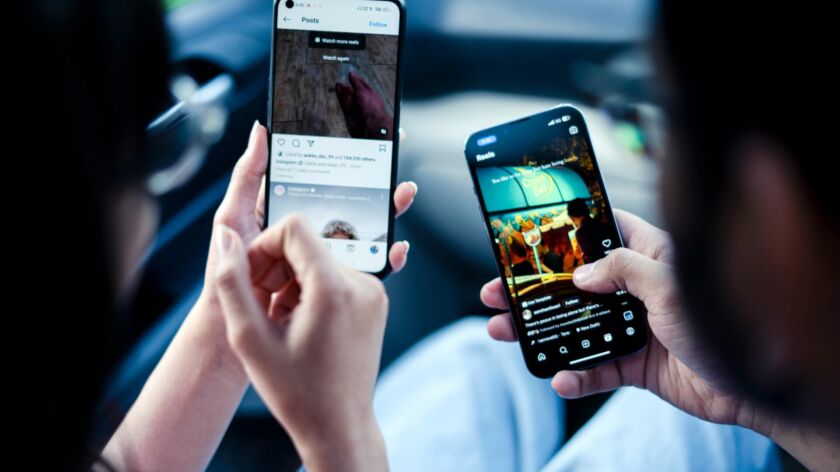Can the smartphone permanently change our brains? ‘A beeping or vibrating phone interrupts concentration’
-
 Foto: Viralyft/Pexels.com
Foto: Viralyft/Pexels.com
Constantly checking your smartphone for notifications. It's a recurring form of stress that can be very distracting, argues professor Erno Hermans. But does this behavior change your brain?
It is difficult to concentrate with a smartphone near you, of this Professor of Cognitive Affective Neuroscience Erno Hermans is convinced. ‘A phone, but also a laptop or a smartwatch, is simply very distracting. Especially when things are happening that concern you. Getting reviews on social media, notifications and messages coming in all the time, these are recurring, minor stressors.’
Gen Z and the smartphone
This article is part of a triptych about the effects of smartphone use and social media on Gen Z. Also read: ‘Is Gen Z getting ruined by the smartphone?’ and ‘The smartphone as an energy guzzler: ‘Students find it difficult to put their phones away’.
Hermans studies the effects of acute and chronic stress, and its impact on the brain. Findings from that research can be partly extrapolated to the effects of smartphone use on the brain, says the professor.
So a smartphone causes recurring stress reactions that reduce your ability to concentrate. Do you see that reflected in the brain?
‘I didn’t specifically put people in a scanner to look at this, but I don’t need brain research to know it either. A beeping or vibrating phone interrupts concentration and you can see that immediately in the brain.’
Can frequent and prolonged phone use also permanently alter the brain? So that over time, we become increasingly unable to focus even when our phone is not nearby?
‘In response to a long period of chronic stress, the brain can start functioning as if it is constantly under acute stress. You are easily startled, easily distracted, and less able to relax. You become hyper-vigilant and hyper-reactive.
Animal research shows that the ramifications in the prefrontal cortex (the brain area involved in memory and planning, among other things, Eds.) atrophy as a result of prolonged stress, so that the brain communicates less efficiently. These are chronic stress effects in animal models, so it doesn’t necessarily mean that phone use can cause similar effects in humans. However, it does give an indication that the brain can change depending on how long you experience certain things.’
So it is not scientifically proven that our brains are permanently altered by phone use?
‘Since almost everyone now has a smartphone, the long-term effects of phone use on the brain are very hard to study. The same goes for social media, almost all young people use them these days. Of course, you can compare people with and people without smartphones, but the problem is that the two groups may differ in many more aspects. For example in terms of social background or lifestyle.
‘The smartphone ban in schools is in any case a good development’

The only way we could make that comparison would be to rent a deserted island and leave a group of some 30 children there for a few years, without a phone. On another island, you would put a similar group with a phone. I’m just kidding, of course, but you understand the problem.
I think we do have proof that smartphones have a negative effect on immediate focus. It is therefore mostly important that we start thinking about how we can make sure that young people don’t have that thing with them all the time, so that they are not constantly distracted. The smartphone ban in schools is in any case a good development.’




